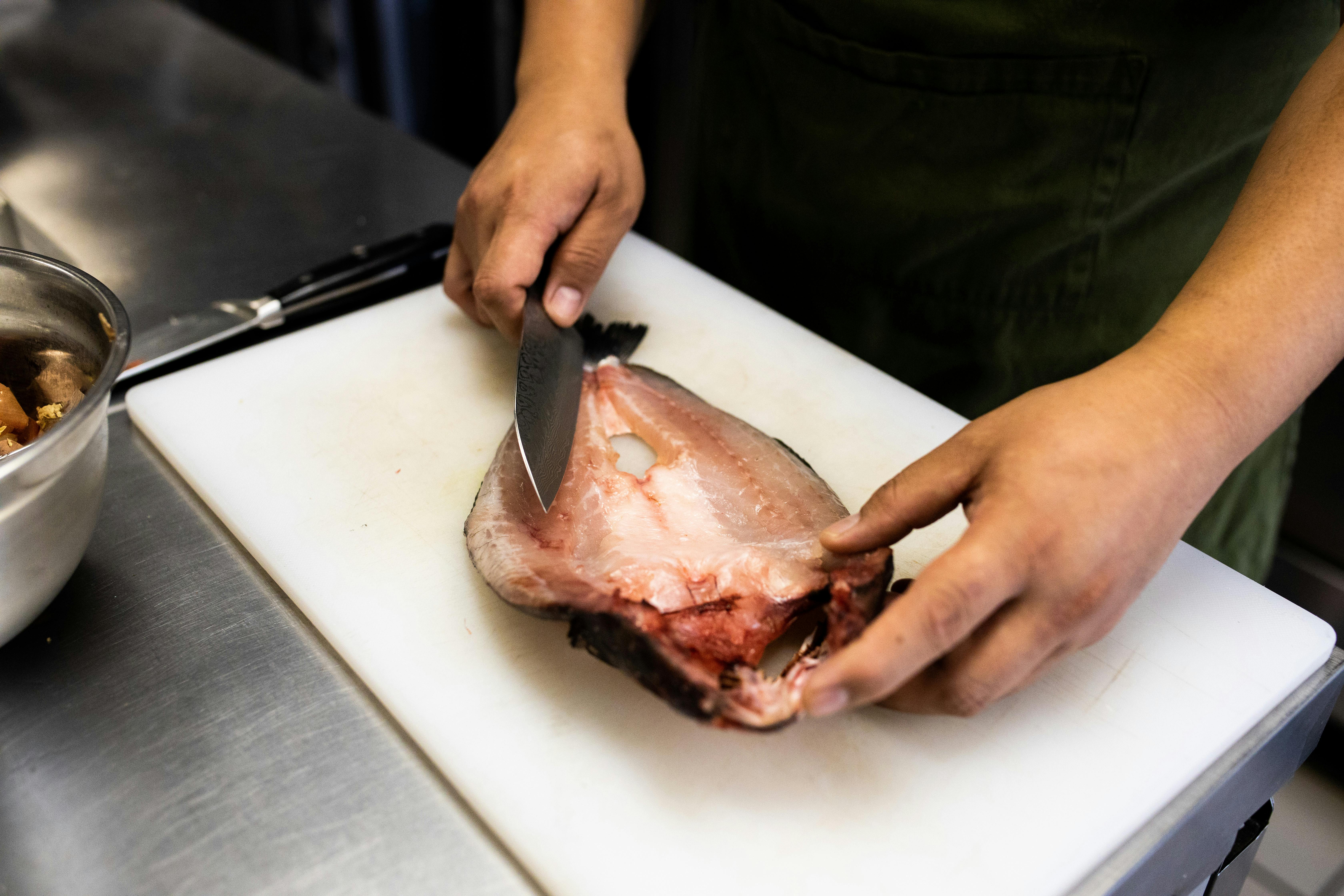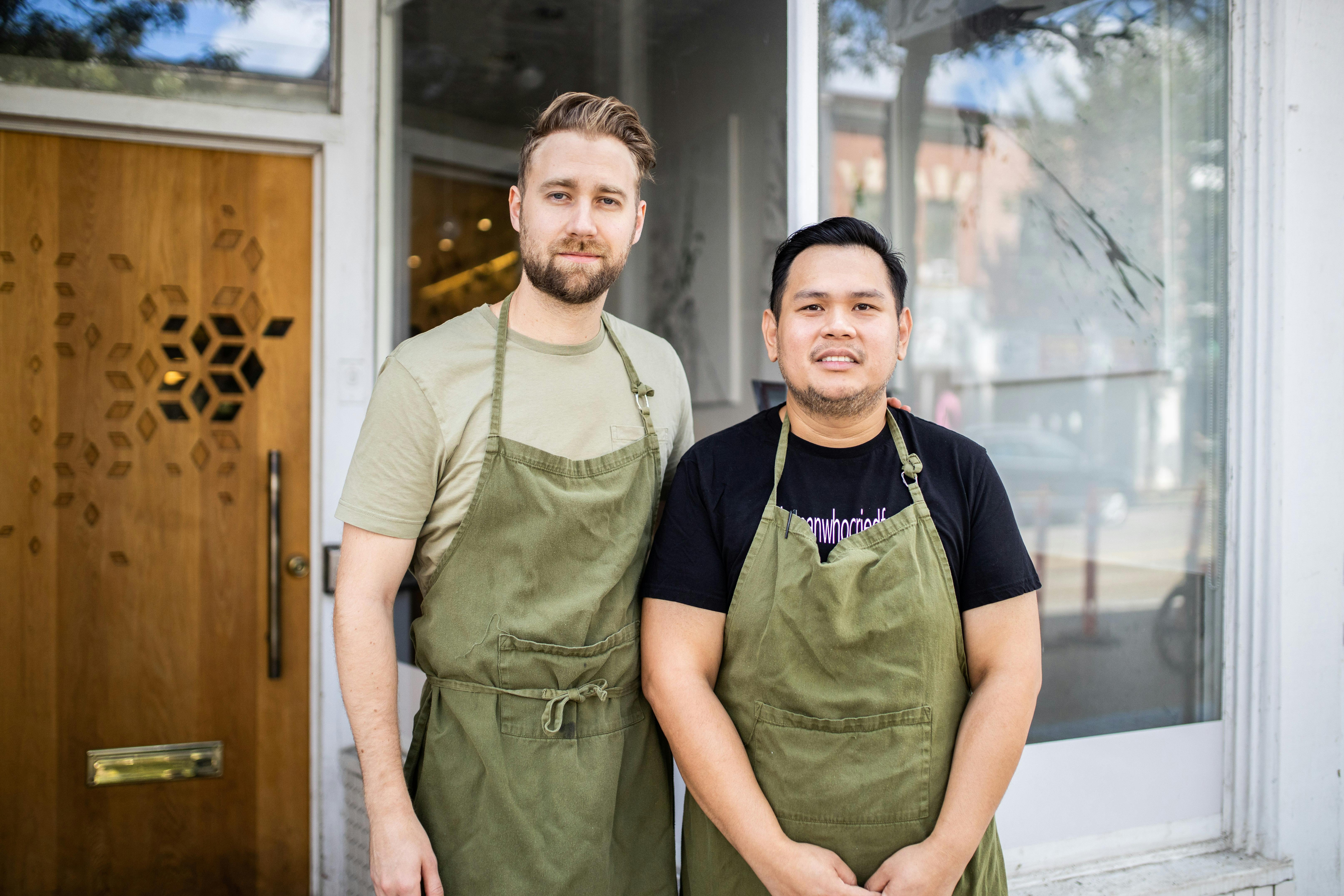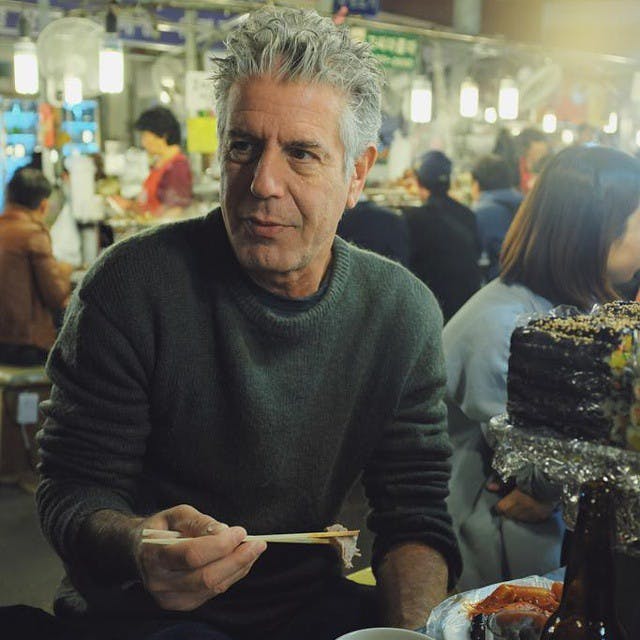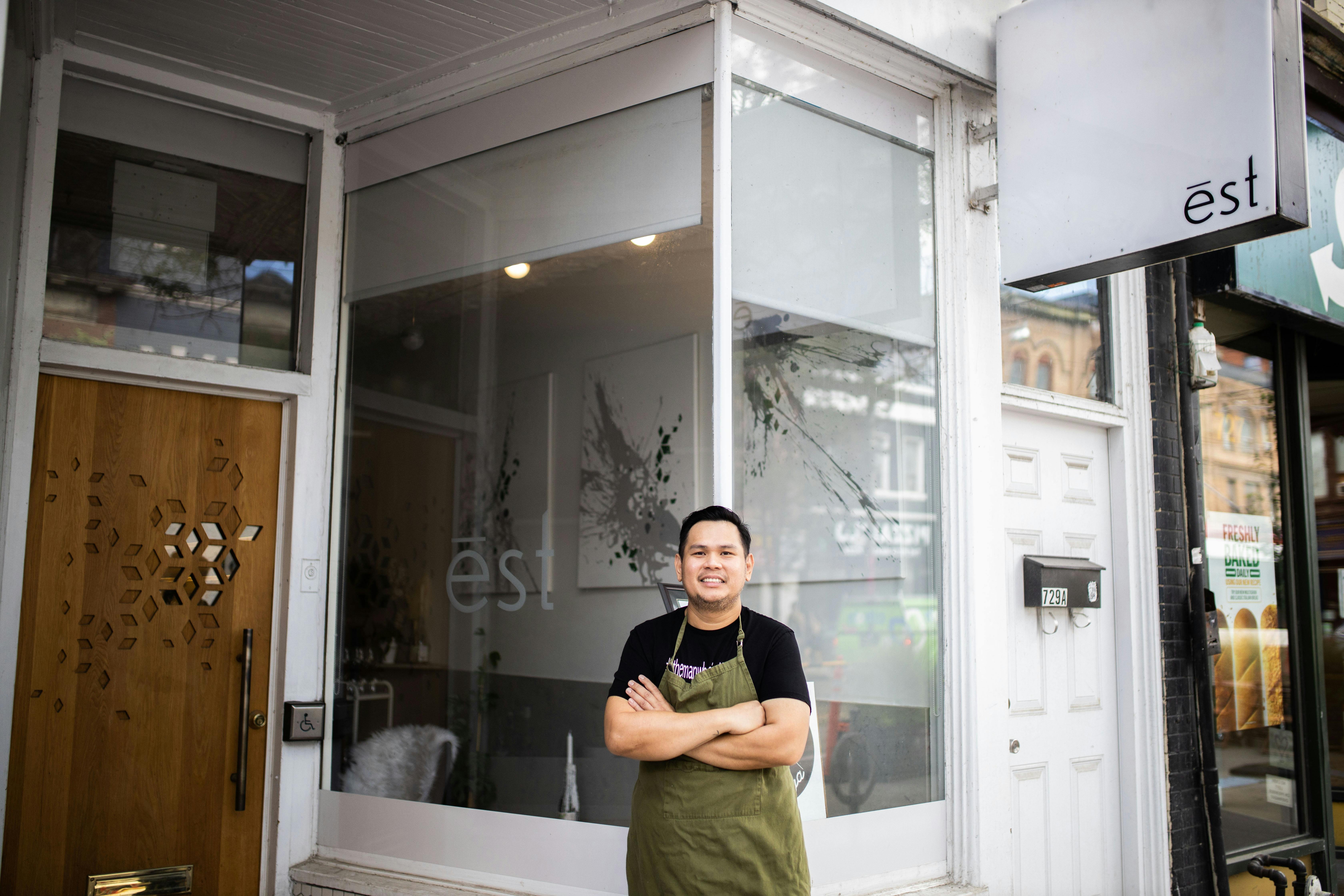
Growing up in the Philippines, one thing Jose Balasico loved most was being with his mother in the kitchen. Instead of running around outside like most kids, Balasico preferred staying inside with his mother and watching her cook. The time that he spent learning how to perfect Filipino cuisine from his mother was what inspired him to finally start a career in the restaurant business after 10 years of working other jobs.
“I am happy that my work now is what I love to do, which is cook,” he says.
Balasico currently wields the role of Chef de Partie at ēst (pronounced east) restaurant in Toronto. Located in what was once a bakery on Queen Street East, the space is intimate, with only 24 seats and a bar. They offer a small-plate casual fine-dining experience with both traditional and vegan options. The dishes are beautiful, each one carefully crafted to almost perfection in both presentation and taste.
The restaurant begins service at 5 p.m. but there is a lot of work to be done beforehand. Balasico starts his day at 11 a.m. with some prep work and inventory, double and triple checking everything is stocked and ready for the night.
This is the calm before the storm when the chef can collect his thoughts and mentally prepare for the busy evening ahead.

Once the doors open and people start flooding in, it's go time for the staff. Orders rush in and so does the adrenaline. Jose explains the nights can sometimes be intense, but a lot of the pressure comes from himself.
“In everything I do, even if it’s the same thing over again, I have to make sure everything I make is as perfect as the one before,” he says. “People expect that eating in a fancy restaurant should always be perfect, and we try to make it that way, but there are always some people that make it harder,” he says.
Jose describes the ēst kitchen as small but efficient, with each chef helping out as much as possible. Chef and owner Sean MacDonald is one of Jose’s best friends and the head chef, Reece MacIsaac, is his roommate––which is a rather unique situation, as most people usually try to separate their personal and professional lives.
“I think I am lucky that I work with my friends,” says Jose. “When we are at work it is professional, but I know that they care for me,” he says.

Balasico (right) with chef and owner of ēst Restaurant Sean MacDonald (left).
Even though Jose loves his work and has a good relationship with his colleagues, he says it is still difficult to maintain a healthy lifestyle both physically and mentally due to the long hours and high-stress environment that comes with his job.
A regular shift for Jose is around 12 to 14 hours, and if it’s a busy day, he will be on his feet the entire time.
“Sometimes it’s so busy the only time I can sit down is in the bathroom, that’s the only time I get a break,” he says.
There’s no doubt the hospitality industry is a demanding field to work in. Food fanatics will know the famous Anthony Bourdain and his struggle with mental health until the end of his life. Bourdain was beloved by many for his TV series and bestselling book “Kitchen Confidential” which explored the raw truths behind the restaurant business.
Bourdain’s death was a tragedy, but he was not alone in his struggle.
A recent survey found that 84 per cent of respondents had experienced mental health issues within their career in hospitality. The survey, conducted by an advocacy group by the name The Burnt Chef Project, took information from 1,273 participants across the UK and found that the main cause of stress and ill mental health was due to no time for work-life balance.
“It wasn’t until I looked at why it was occurring that I realized it was down to the likes of business structures such as the long hours, the way people were being managed and exacerbated by cultures of harassment or bullying,” said Kris Hall in an email. Hall is the founder of the Burnt Chef Project, whose goal is to raise awareness for mental health issues.

Jose’s experience is similar to those who responded to the survey. He says his job is hard, not because he is under pressure to produce near-perfect meals for guests, but because it is difficult to find time for himself.
“For a while I would say I was definitely depressed,” says Jose. “When you work in the same place almost every day in a hot kitchen with no windows it’s very hard. By the time I get home around 1 a.m., I am exhausted.”
It is hard to maintain any kind of social life outside the restaurant when the hours are so long, but it is even more difficult to maintain the high standard of work Jose's career requires if he is not properly rested.
“If I’m down and not feeling good mentally, it affects my mood, it affects my work and it affects my food,” he says.
Jose also says a lot of his stress comes from being far away from his family who are back in the Philippines. “It’s tough because if I need someone to talk to, I don’t have someone ready,” he says.
Hall says to create sustainable change within the hospitality workforce, there needs to be more training for workers.
“As hospitality professionals, quite often we aren’t taught how to manage people. It’s all well and good pointing out where the problems are, but for long term effects we need to educate and guide change,” he said.
As for Jose, he believes one of the most beneficial things to maintaining good mental health is to surround yourself with a good support system, but he says more should be done by restaurant owners and managers to help.
“I think owners should provide resources to their workers to talk about things if they are stressed, regardless if they are okay or not, just to have them there,” he says.

Dining in restaurants is common for most people, but do we ever think about what goes on behind closed kitchen doors? The reality is, kitchen staff face high rates of ill mental health, which has only increased lately due to the pandemic. Overall, by raising awareness to break the stigma on this issue, and becoming mindful as a customer of these establishments, there is hope that the sometimes toxic culture can shift towards a brighter future.










